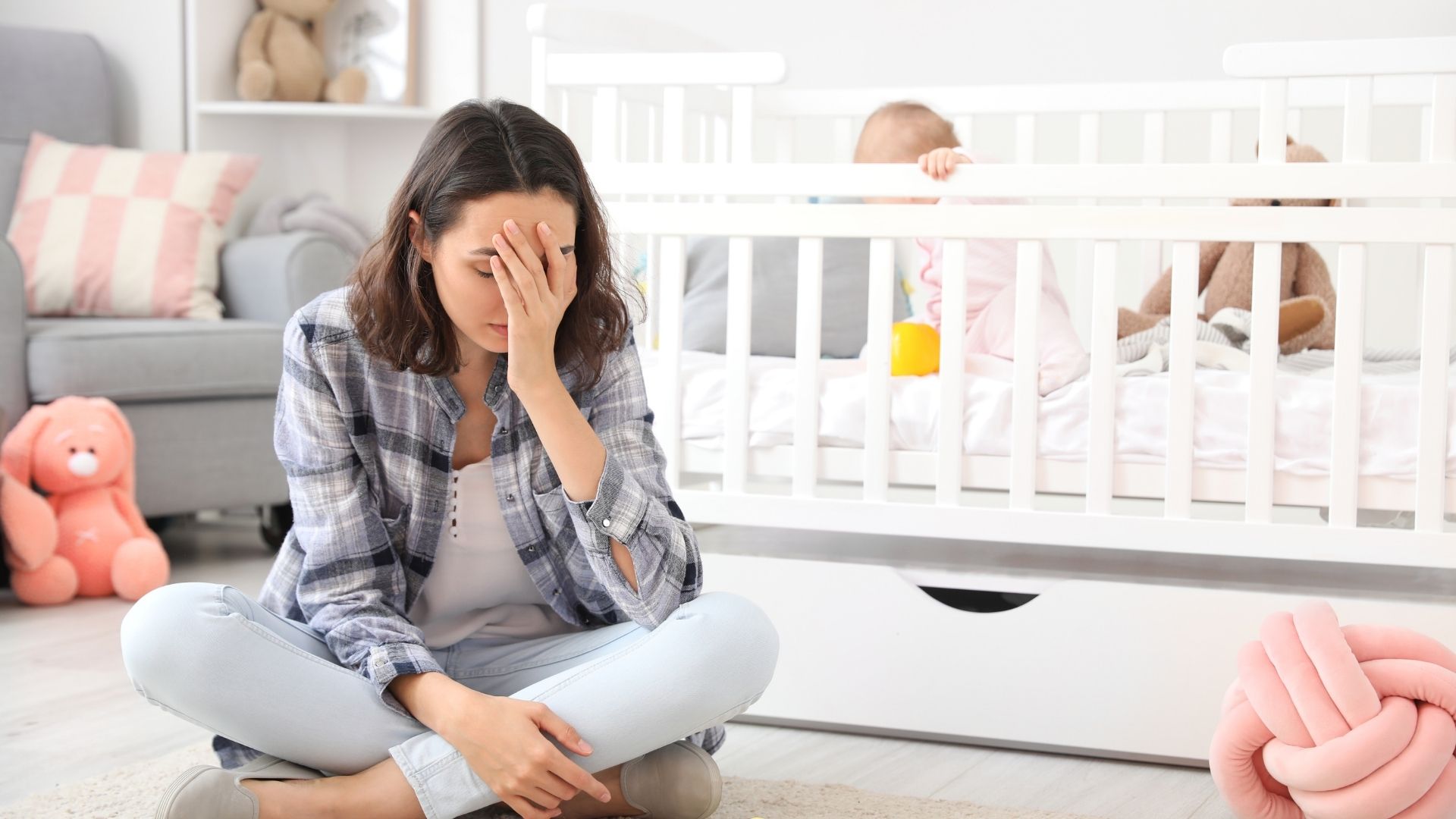Specialist Dr. Yaprak Arslan Psychiatrist & Psychotherapist
İzmir Psikiyatrist
İzmir Psikoterapist
izmir Psikolog
Psikiyatrist
Psikoterapist
Psikolog
Major Depression
Generalized Anxiety Disorder
Social Phobia
Panic Attack
Obsessive Compulsive Disorder OCD
(ADHD) Attention Deficit Hyperactivity Disorder
Bipolar Disorder
Depression Treatment
Supportive Psychotherapy
EMDR
Sex Therapy
Schizophrenia and Other Psychotic Disorders
Postpartum (Postpartum) Depression

Childbirth is one of the most meaningful and exciting moments of life for many women. Although bringing a new life into the world brings indescribable happiness, a different reality emerges for 10-20% of women during this period: postpartum depression (PPD).
Postpartum depression is a serious condition that begins in the first few weeks or months after childbirth, affecting the emotional, physical and mental health of the mother. This condition can deeply affect the life of not only the mother, but also the baby and the family. So, what is postpartum depression, what are the symptoms and how can I be supported during this process?
What is Postpartum Depression?
Postpartum depression is a type of depression that manifests itself with persistent and intense changes in the emotional state of the mother after childbirth. Most new mothers experience a slight emotional fluctuation known as “baby sadness” within a few days after giving birth. However, this condition is usually a mild condition that disappears within a few days or weeks. Postpartum depression, on the other hand, lasts longer and is more severe.
This condition can occur due to a combination of many factors, such as hormonal changes, disruption in sleep patterns, new responsibilities, and lack of social support.
Symptoms of Postpartum Depression
The symptoms of postpartum depression can vary from person to person, but they can usually be listed as follows:
- A constant feeling of sadness or hopelessness
- Crying fits
- Fatigue and lack of energy
- Apathy towards the baby or other family members, inability to bond with the baby
- Difficulty concentrating
- Excessive anxiety or restlessness
- Changes in sleep and appetite
- Irritability and anger
- Thoughts of self-harm: In more serious cases, the mother may become afraid or have thoughts of harming herself or her baby.
If you are experiencing several of these symptoms, do not underestimate your condition. Asking for help is not a weakness, it is a sign of courage.
Causes of Postpartum Depression
Postpartum depression does not have a single cause. Many biological, psychological and environmental factors can come together to trigger this condition. Dec.
- Hormonal changes: The rapid decrease in estrogen and progesterone levels after childbirth can lead to chemical imbalances in the brain.
- Psychological factors: The risk is higher, especially in mothers with a history of depression or anxiety in the past.
- Physical factors: Insomnia, postpartum pain and the physical recovery process can cause stress.
- Lack of social support: Feeling that you don't get enough support from family or friends can increase the feeling of loneliness.
Treatment and Support for Postpartum Depression
Postpartum depression is a treatable condition. With early diagnosis and a proper support plan, mothers can feel strong and happy again.
- Psychotherapy: Talking with a therapist can be effective in alleviating the emotional burden, helping mothers to improve their emotional and mental state.
- Medication treatment: In some cases, antidepressants may be recommended. But the use of medications in nursing mothers should definitely be guided by a specialist.
- Support groups: Sharing experiences with other new mothers can reduce feelings of loneliness.
- The support of the immediate environment: The support of the spouse, family and friends can accelerate the healing process of the mother.
Take Care of Yourself in the Fight Against Postpartum Depression
- Prioritize rest: Sleep is essential for mental and physical recovery.
- Eat healthy: Your body needs energy and nutritious foods.
- Start with small steps: Regain your sense of control by setting yourself small goals every day.
- Share your feelings: Don't be afraid to tell your feelings to a friend, partner or an expert.
Recommendations for Spouses and Families
When a mother is experiencing postpartum depression, the support of those around her is vital. To family members;
- Listening to your mother's feelings without judging
- Helping with household chores or baby care
- Making mom feel like she's not alone
- It is recommended to encourage him to seek professional help if necessary.
As a result,
Postpartum depression is a condition that needs to be talked about more. Mothers should know that they are not alone in this process. As a society, providing more support to new mothers and prioritizing their physical, mental and emotional health forms the basis for stronger families.
If you or someone you know is experiencing these symptoms, do not hesitate to contact a specialist. Getting help is the most valuable step for the health of both you and your baby. Motherhood, despite all the difficulties, is one of the most special journeys in a woman's life. Receiving support on this journey is the most natural right.
Psikiyatrist & Psikoterapist
